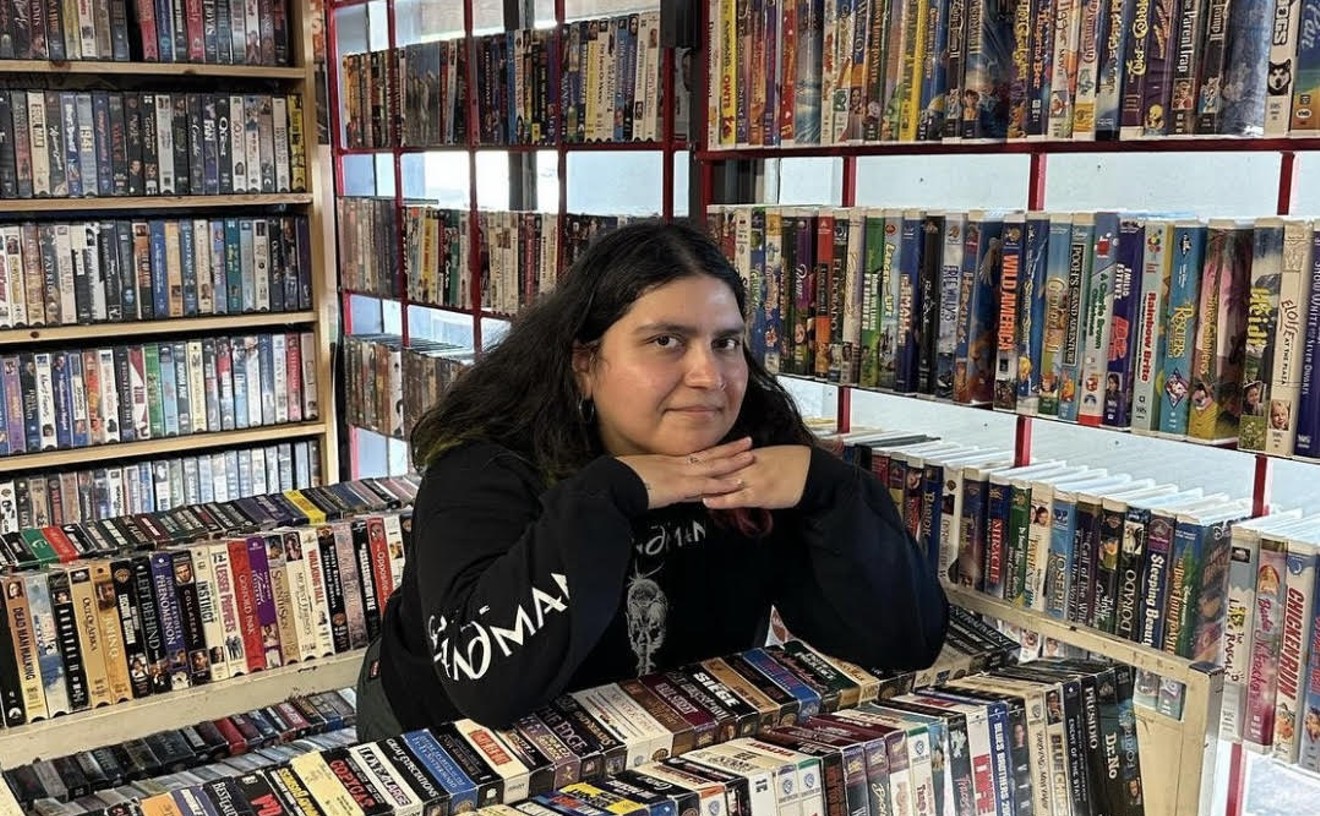Three years ago, when Jake Heggie finished the music for the opera Moby-Dick, he didn't expect to return to the source material. But the book is big enough to have its own gravitational pull.
Last night was the world premiere of Heggie's Ahab Symphony at the Murchison Performing Arts Center in Denton. The symphony is Heggie's main project as an artist-in-residence at UNT, written for the UNT Symphony Orchestra (conducted by David Itkin), the UNT Grand Chorus, and Richard Croft, tenor soloist and UNT professor of vocal studies.
Here's the idea. At the very end of Moby-Dick, just as Ahab and company are setting off to try to kill the just-spotted whale, the captain has a moment when he looks around and remarks what a lovely day it is. And Heggie has stretched that moment out into a half-hour meditation.
"In opera things have to stem from action and lead to more action," Heggie says, "but in a symphonic work you can be more contemplative and meditative."
Croft's lines all come from Ahab's monologue in the last chapter of the book (the 135th), while the orchestral lines are all excerpts from W.H. Auden's poem, "Herman Melville." In the poem, Auden meditates on the end of Melville's life -- the man who died an obscure customs agent 40 years after backlash against Moby-Dick sank his literary career:
...but it was the gale had blown him Past the Cape Horn of sensible success Which cries: "This rock is Eden. Shipwreck here."
"He had been on whaling vessels and imagined these fiery characters and he had such an anonymous end," Heggie says. "Ahab would bring everyone down with him rather than go down quietly." Heggie's goal in combining the two texts is to show the challenges faced by both Ahab and Melville just before their deaths.
Relying on multiple source texts makes sense for a man who says the best film version of Moby-Dick ever made is Jaws. Heggie believes that other adaptations -- including films starring no less than Gregory Peck or Patrick Stewart -- are too reverent toward the source material and afraid of straying from literal interpretations.
"It's inherent in every human being to rail against randomness in the world," Heggie says. "People always ask me, 'What is the white whale? Is it God?' And I say, 'It's a whale. It has no idea that Ahab has projected all this stuff on it.'"
"Were I the wind, I'd blow no more on such a wicked, miserable world," sings Croft, repeating some of his lines with an obsessive reflection that mirrors the Pequod's captain.
Heggie's score is enthusiastic and cinematic, jumping up in spots left open by the chorus, and more than once I was completely swept up by it. And there's something surprising about hearing Auden's writing sung by more than 150 people. Auden is one of a handful of poets whose writing makes me imagine a quiet man speaking directly to me. By comparison, hearing "Towards the end he sailed towards extraordinary mildness" belted out operatically is shocking in a very good way.
After Croft sings his final line ("I turn my body from the sun") and the choir sings theirs ("And he sat down at his desk and wrote a story"), the score's end is gentle and decisive. We all know how Ahab and Melville's stories ended, but after The Ahab Symphony I still feel the urge to go whaling.










